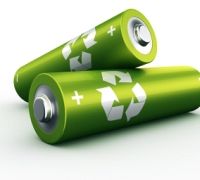

Members of the public have been urged by the Health and Safety Executive (HSE) to use the appropriate recycling points to dispose of used batteries.
The recent call made by the HSE comes in the wake of fires that came from the household mixed wastes, in which the batteries were inappropriately disposed of. In a statement made by the HSE, members of the public are urged to "safely dispose of batteries at recycling points. Disposing of batteries in waste collections can lead to the risk of injury to refuse workers and members of the public from fires and explosions".
In East Northamptonshire and Warrington, battery fires caused damage to waste collection vehicles.
Dave Reynolds, group technical director at WasteCare, said: "All batteries present a fire risk as any battery has a potential to spark". He also added, that certain types of batteries, such as AA and AAA, which are commonly used in clocks, remotes and torches, pose less risk, because they have terminals at both ends of the battery.
"The case is now that some batteries present a higher risk than others. The question is, how easy is to short [circuit] a nine volt battery, for example the sort that are found in smoke alarms? The answer is that it is very easy, with a paper clip, foil or a staple. There are videos on YouTube showing how easy it is to cause a fire, such as when they are placed next to wire wool."
Another issue brought up by Mr Reynolds is that the public often discards batteries with attached wires to them, such as toys and other products, which can very easily lead to a short circuit. In the wake of the modern lithium batteries found in mobile phones, there is a greater fire risk due to their high energy release potential if damaged.
Finally, when the people store unused and used batteries at home they "need to be aware of the way they keep batteries for recycling at home. Don't leave them in a drawer where coins and paperclips can cause a short circuit at home."
For more information regarding the disposal of batteries and accumulators, see: